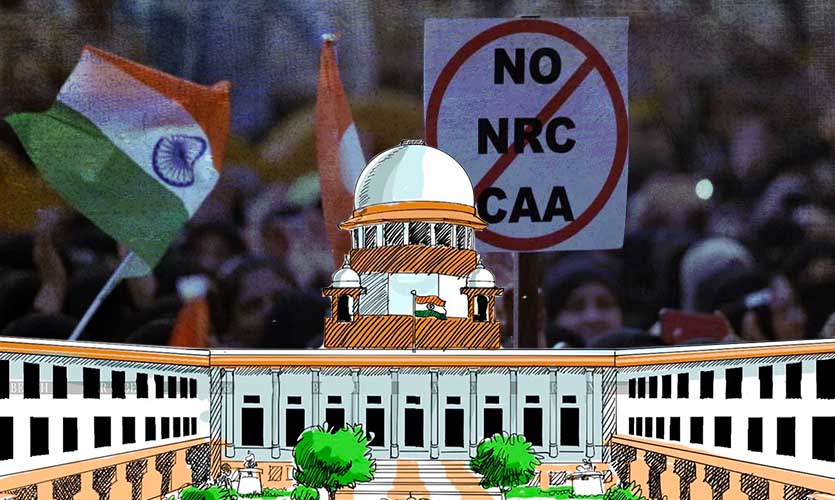In a fresh affidavit, on Sunday, the central government told the Supreme Court that the ‘benign legislation’ – the Citizenship Amendment Act – does not affect the legal, democratic or secular rights of any Indian citizen.
The 150-page affidavit states that the legislation is meant to provide “amnesty to specific communities”, and defended the law’s exclusion of Muslims by pointing out that it was specifically written to protect minorities who had endured discrimination in the Islamic countries of Pakistan, Afghanistan and Bangladesh.
The Ministry of Home Affairs (MHA) stated ahead of the petition hearing on the highly contested CAA, which had sparked protests in various parts of the country in late 2019 and early 2020 over alleged discriminatory provisions, that the current regime for foreigners obtaining citizenship of any country continues to be unaffected by the law.
The affidavit reads, “Article 6 of the Constitution deems all migrants in India from Pakistan (including present day Bangladesh) as citizens of India if such persons or their parents or grandparents were born in undivided India or such persons had migrated into India before July 19, 1948.”
“If such persons had migrated after this date and got registered before a competent officer and had been resident in India for at least six months before the date of registration, then such persons were also deemed to be Indian citizens. It is obvious that Article 6 deemed a special class of migrants post-partition (which clearly took place on religious lines and resulted in large scale migration on religious lines) as citizens of India due to their very special circumstances,” said the government.
The MHA further argued that excluding parts of Assam and other northeastern states from the application of the CAA was “not discriminatory” because it was done to “protect the natives’ ethnic/linguistic rights”.
It stated that the CAA would not alter the demographics of these states, and that the concerns of the tribal population in the northeastern states regarding illegal immigration, particularly in Assam and Tripura, have been taken into account. Additionally, it refuted the petitioners’ claim that the CAA violates the terms of the Assam Accords.
According to Article 245 (1) of the constitution, the MHA claimed that the Parliament has the authority to enact laws for the entirety of India’s territory or for any specific region within it, and that policy-related disputes cannot be questioned through public interest litigation petitions.
The affidavit was filed a day before Chief Justice UU Lalit is scheduled to preside over the hearing of as many as 232 petitions challenging CAA today.










